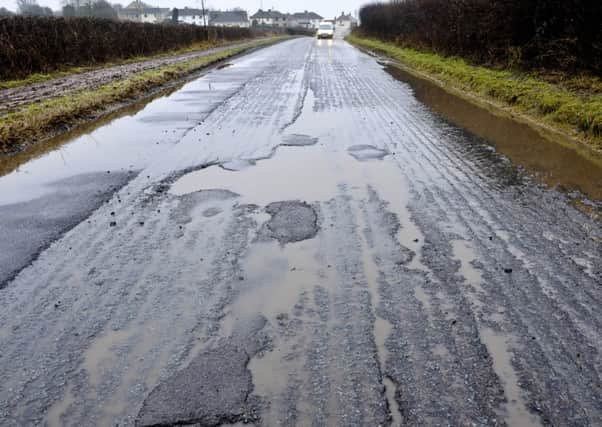‘Crumbling’ Leeds roads’ £100m repair backlog


Councils across the country have been left searching for millions of pounds to pay for the repairs as the scale of the problem caused by the poor state of Britain’s roads has been laid bare.
It would cost £100m to bring deal with Leeds’ “significant” road maintenance backlog, and more than £300m in North Yorkshire, £68m in Wakefield and £48 in Bradford.
Advertisement
Hide AdAdvertisement
Hide AdLast month the Government announced that councils across England were to receive almost £6billion to fight potholes over the next six years - but councils, business bodies and unions say that figure falls drastically short.
Leeds Council, which will receive £45m, said the cash was not enough, and Coun Peter Box, the Local Government Association’s transport spokesman, and the leader of Wakefield Council, said tackling the road repair bill must be a “national priority” for the Government. The LGA wants the Government to inject a further £1b a year into road maintenance, funded by fuel duty.
Coun Box said: “We are all fed up with driving on crumbling roads that are not fit for the 21st century. Councils work hard to fix millions of potholes every year despite deep funding cuts and multi-million pound compensation costs. We want to do more but are trapped in a frustrating and endless cycle of only being able to patch up our deteriorating roads.”
He warned the situation “will only get worse” as the Government predicts traffic to rise 40 per cent by 2040.
Advertisement
Hide AdAdvertisement
Hide AdA spokesman for the Road Haulage Association said poor quality roads were costing road users “billions of pounds” a year in damage to vehicles.
A spokesman for Leeds City Council said: “Despite further funding recently being made available to tackle this problem which is welcome, it is not enough to see a dramatic turnaround in road conditions and will still mean we have to prioritise our work in the areas most in need.”